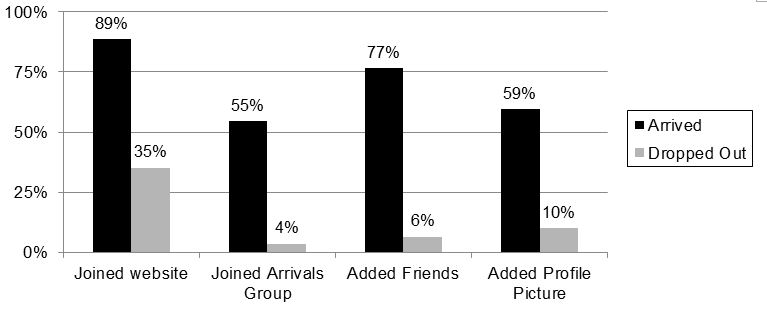Introduction
As managers and trainers, we are usually well aware of the organizational need for training new teachers when they arrive in our schools. New teachers need to learn about the curriculum, need to understand the methodology of their school, need to be trained on how to manage the classroom. But what about the needs of the new teachers themselves? This workshop aimed to make participants more aware of the needs of teachers who move abroad to teach English as a foreign language, demonstrate a low-cost way to meet teachers’ needs and show the results of meeting these needs.
Surprisingly little has been written about the needs of expats who chose to move to another country to live and work on their own arrangement (termed “self-initiated expats” or “SIEs”) (Mezias & Scandura 2005). However, the benefits of providing assistance to ensure SIEs successfully transition to the host country are well established. An effective induction program for staff moving abroad can reduce the time it takes for new employees to reach their performance potential as well as helping organizations to attract talent (Howe-Walsh & Schyns 2010). The stress caused by the uncertainty associated with moving abroad can be minimized by providing SIEs with information about the host country (Mezias & Scandura 2005). For language teaching organizations (LTOs) recruiting teachers from abroad, providing support and information face to face for teachers before they move abroad is often either highly expensive or logistically impossible. It therefore logically follows that LTOs should attempt to help teachers with their transition abroad using online resources.
Research Method
Over a period of 6 months, surveys were sent to SIE teachers who recently accepted a job offer to work for Education First (EF) in China, a privately owned LTO with 102 schools in 16 cities in China which teaches both adults and young learners. 265 useable responses were received. 58% of the respondents reported they had less than one year’s TEFL experience and 85% were scheduled to start work within two months of completing the survey. The survey asked two open questions:
“What more information would you like to receive before you arrive in China/start working for EF?”
“What are your main concerns about living in China and/or working for EF?”
A low-cost social media website was created which offered a networking space for teachers and provided information about life in China and working at EF. Teachers were invited online to join “arrival groups” with peers who would arrive in China at the same time as them to facilitate building connections with other teachers. Teachers could also “friend” other teachers on the website and add a profile photo to their profile page.
Activity on the website was recorded for 300 SIE teachers who accepted job offers. 192 of these teachers joined the company. 108 dropped out of the recruitment process. The online activity of these teachers was compared to determine the effect of pre-departure information on attrition.
Results
Teachers’ most common requests for information and main concerns pre-departure centered around issues such as finding somewhere to live, overcoming the language barrier, knowing what to bring, managing their finances, overcoming culture shock and making connections with other teachers. Teachers tended to be less concerned and inquisitive about understanding the curriculum, receiving training or learning the teaching methodology of the LTO. This was true both for teachers with and without prior TEFL experience.
It was also established that the more teachers used the website, accessed information and interacted with other teachers online, the less likely they were to drop out of the recruitment process (Figure 1).
Figure 1: Effect of pre-departure social medial activity on attrition
Conclusions & Recommendations
The majority of teachers’ concerns and requests for information were ‘basic needs’ (i.e. physiological, safety and belonging needs) (Maslow, 1943) which contrast with information and training often given to new teachers on methodologies, classroom management, etc. While LTOs’ goals for teacher inductions cannot be ignored, taking into account the needs of teachers can help them to reach their performance potential faster (Howe-Walsh & Schyns 2010).
Accessing information and networking with other teachers pre-departure appeared to help facilitate the successful transition of teachers to the host country (in this case, China). Providing information and networking opportunities for teachers pre-departure and encouraging teachers to take advantage of these resources can increase teachers’ chances of effectively transitioning to living and working in a new country.
References
Howe-Walsh, L. and Schyns, B. 2010 ‘Self-initiated expatriation: implications for HRM’. International Journal of Human Resource Management. 21: 260-273.
Maslow, A. 1943. ‘A Theory of Human Motivation’. Psychological Review 50: 370-396.
John M. Mezias and Terri A. Scandura. 2005. ‘A Needs-Driven Approach to Expatriate Adjustment and Career Development: A Multiple Mentoring Perspective’ Journal of International Business Studies 36: 519-538.

